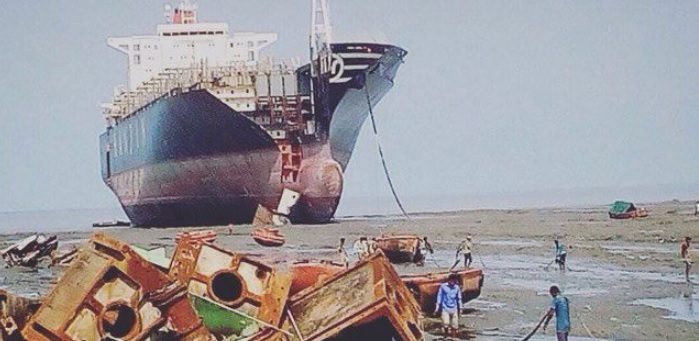Of the 204 ships broken in the first quarter of 2021, 155 ships were sold to the beaches of South Asia, notorious for poor work safety and environmental practices, the latest report from NGO Shipbreaking Platform shows.
According to the report, Greek ship owners sold the most ships to South Asian yards, closely followed by Japanese, United Arab Emirates and South Korean owners.
Almost one third of the ships sold to South Asia this quarter changed flag to the registries of Comoros, Gabon, Palau and St. Kitts and Nevi just weeks before hitting the beach.
These flags are not typically used during the operational life of ships and offer ‘last voyage registration’ discounts, the NGO said.
They are particularly popular with the middlemen scrap-dealers that purchase vessels cash from ship owners, and are grey- and black-listed due to their poor implementation of international maritime law.
Only 49 ships were sold to green recycling yards. Of these 23 were sold to the EU-based yards, 24 ships to ship breakers in Turkey and only 2 to Chinese yards.
During the first quarter of 2021, at least four yard workers were injured and six workers died in accidents in Bangladesh, Pakistan, and India.
According to trade unions, there were two fatal accidents at the shipbreaking yards in Alang, India during the first quarter of the year.
Two workers lost their lives in an accident at a shipbreaking yard
in Gadani, Pakistan, while two more lost their lives while dismantling ships at Bangladeshi yards.
Meanwhile, the entrance into force of the IMO treaty for safe and environmentally-sound ship recycling, the Hong Kong Convention, remains on standby.
The convention covers the design, construction, operation, and maintenance of ships, and preparation for ship recycling in order to facilitate safe and environmentally sound recycling.
The convention’s entry into force is expected 24 months after ratification by fifteen states, representing 40 percent of world merchant shipping by gross tonnage, combined maximum annual ship recycling volume not less than 3 percent of their combined tonnage.
So far, 16 countries have joined the treaty, representing approximately 29.58% of the world’s merchant shipping tonnage.
